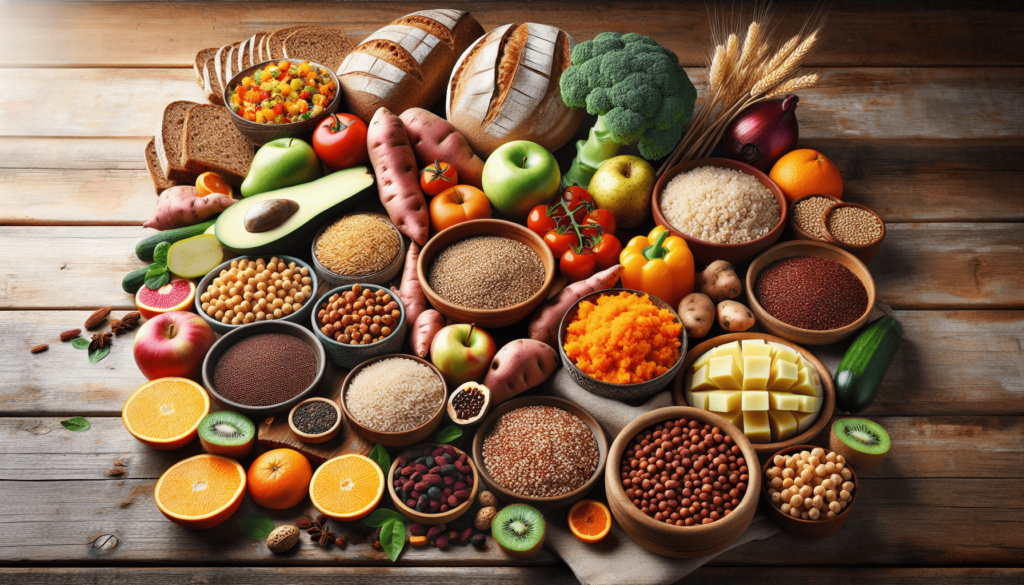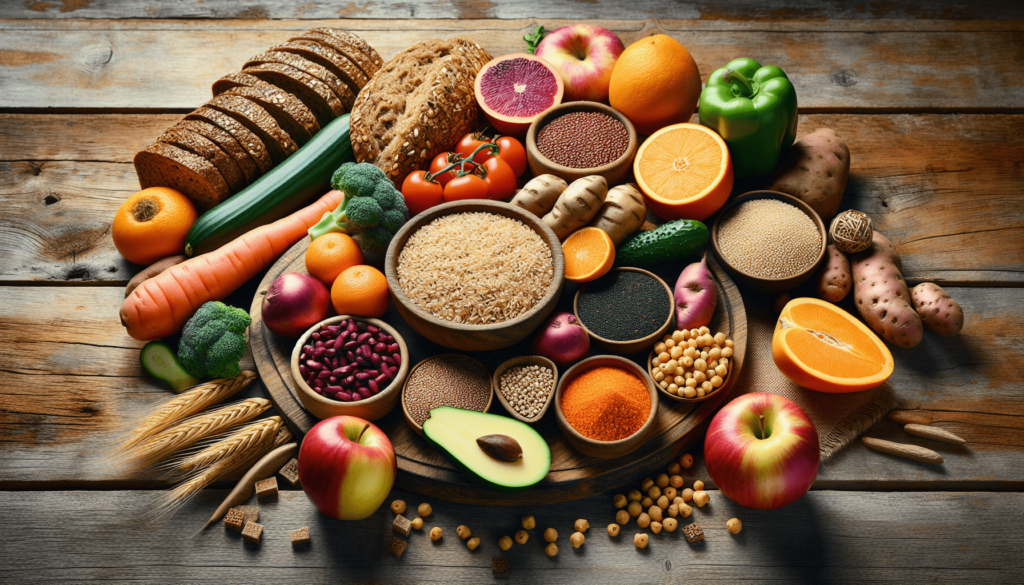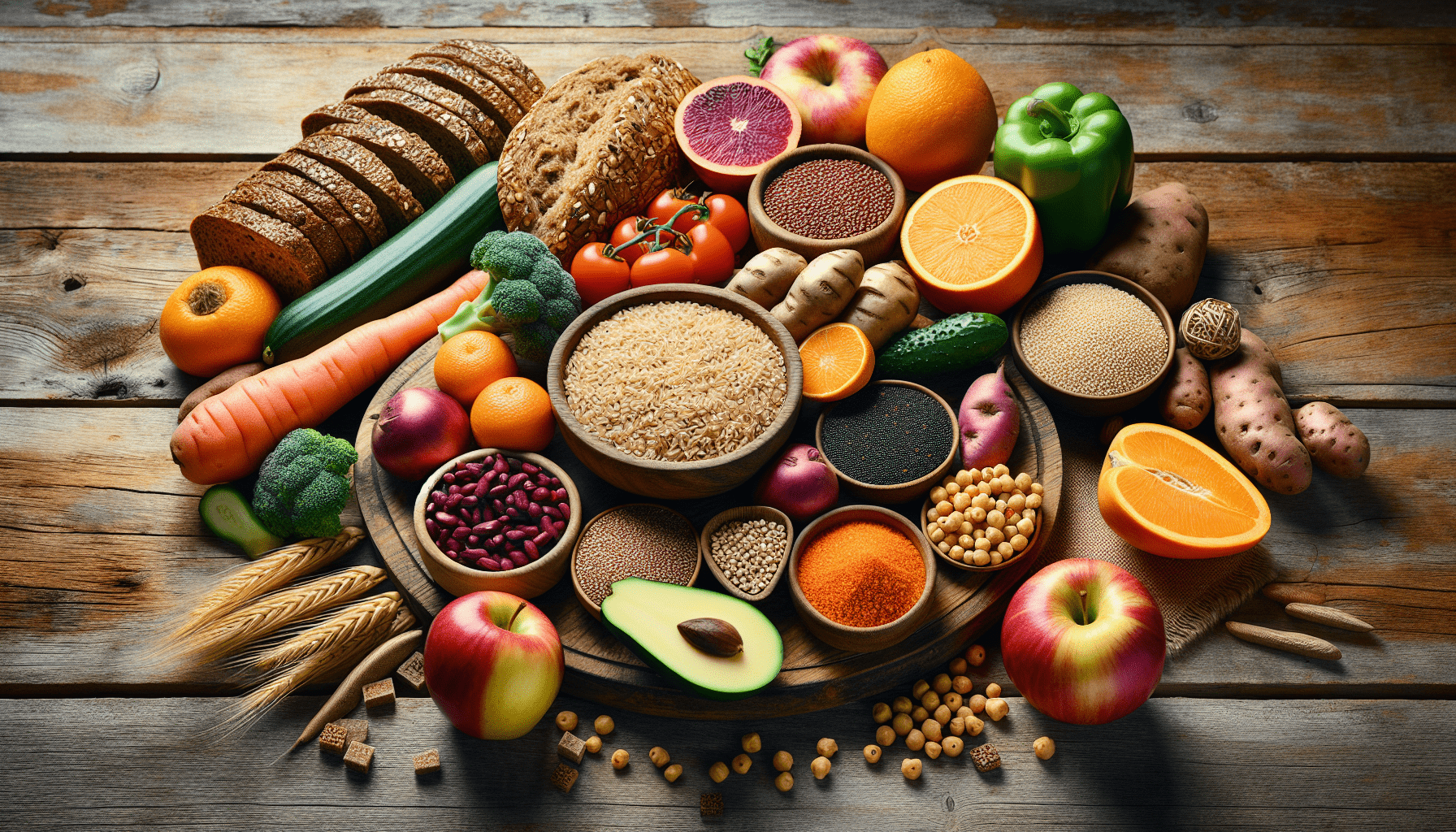Have you ever wondered why some folks treat carbs like they’re the villain in a superhero movie? They’ve got everyone so terrified that they’ve been banished from many a dinner table across the globe. But lo and behold! Carbs aren’t the pesky antagonist we’ve been led to believe. Instead, they’re like that misunderstood brooding vampire in a rom-com who turns out to have a heart of gold — or, in this case, fiber-rich starchy goodness. So, let’s embark on a humorous little journey about the role of healthy carbs in a balanced diet. Grab your popcorn (a lovely whole grain option!), and let’s unravel this mystery with all the flair of a detective looking for their missing spectacles on their own head.

What’s the Deal with Carbs?
Let’s start with the basics. Carbs, or carbohydrates if you want to get all fancy and proper, are one of the three macronutrients that your body needs to function efficiently. Think of them as the basic building blocks for daily living — sort of like how you need bricks to build a LEGO castle, or a creative metaphor to make it through a 3,000-word article.
Why Do You Need Carbs?
Good question, Hercule Poirot! Carbs are crucial because they provide your body with glucose, which, in turn, is converted into energy used to support bodily functions and physical activity. Let’s face it; without them, you’d be dragging yourself through life like a sock caught on a stray nail.
Types of Carbs
Here’s where things get a bit more dashing and romantic. There are two main types of carbohydrates: simple and complex. Imagine them as the Cinderella and the Stepsisters of the nutritional ball.
-
Simple Carbs: These are your quick-fix, one-night-stand carbs. They’re fast to release energy and just as quick to vanish, leaving you with the sugar equivalent of the morning-after blues — crankiness, tiredness, and an addiction to bad reality TV shows.
-
Complex Carbs: These carbs are like a five-course meal at a fancy restaurant. They take their sweet time releasing energy, giving you a long-lasting feeling of fullness and satisfaction. They might even whisper sweet nothings into your metabolic profile, drawing out energy slow and steady.
The Case for Healthy Carbs
Now that you’re acquainted with the carb family, let’s dive into why you’d want to invite the complex ones over for dinner. Complex carbs, especially those high in fiber, are important for maintaining digestive health. They’re the plunger to your clogged sink, ensuring everything flows as it should — metaphorically speaking, of course.
The Weighty Issue
If there’s one thing many people fear more than a surprise visit from the in-laws, it’s gaining weight. Complex carbs, however, can actually assist in weight management. Fiber-rich foods can help fend off hunger, reducing your inclination to raid the fridge like it’s your personal pandemonium-saving conquest.
Beneficial on Multiple Levels
Consuming healthy carbs is like dating someone with qualities that your mother actually approves of. They’re packed full of nutrients like vitamins, minerals, and antioxidants, doing wonders for your health. Picture them giving your body the nutrient equivalent of a pep talk.
A Balancing Act
Gone are the days when we’d villainize certain parts of a meal. Modern diets are all about balance, flow, yin and yang if you will. A well-balanced diet includes all macronutrients, and carbohydrates play a crucial role. So, invite them to your healthy dinner party; they promise not to wreck your dining room or pop all your balloons!
Decoding the Carb Spectrum
Carbs exist on a spectrum more colorful than a kindergarten art class — from the wholesome grains of goodness to the sugar-loaded candy land.
Whole vs. Refined
-
Whole Grains: Think of whole grains as the all-natural, organic mascara of the carb world. They’re the grains with all their parts intact: bran, germ, and endosperm. They’re the carbs that have graduated from the school of hard knocks with honors, showing up in foods like brown rice, quinoa, oats, and whole wheat bread.
-
Refined Grains: These are grains that have shed their outer layers for a starring role in your pantry. They’ve been milled, a process that removes parts like the bran and germ, leaving them bare and, quite frankly, a little nutritionally naked. Foods like white rice, white bread, and sugary cereals hop on this train like accidental hitchhikers.
Glycemic Load vs. Glycemic Index
When it comes to carbs, what you see isn’t always what you get. The Glycemic Index (GI) and Glycemic Load (GL) help paint a more accurate picture.
-
Glycemic Index: In simple terms, the GI tells you how quickly a carb-containing food will raise your blood sugar levels. Foods with a high GI are like slapstick comedians delivering punchlines too fast, while low GI foods provide their gags slow and steady.
-
Glycemic Load: GL gives you a broader picture, combining quantity with quality. It takes the GI and factors in the amount of carbohydrates in a serving, so it’s like a GPS for your carb journey, telling you the mileage rather than just the speed.
The Power of Healthy Carbs
Healthy carbs aren’t just about providing energy. They’re multi-talented little nuggets that offer several health benefits, akin to a Swiss Army knife of nutrition.
Sustained Energy
Carbs are your body’s go-to energy source, akin to the batteries in your remote control when you’ve lost the willpower to get off the couch. Complex carbohydrates, thanks to their leisurely breakdown, provide a consistent release of energy throughout your day — much like that unyielding friend who persistently texts you motivational quotes.
Mental Agility
Your brain adores glucose like a cat loves a sunbeam. A diet rich in healthy carbs can boost your mental faculties, acting as a sort of mental arithmetic wizard. It’s the difference between solving puzzles like a turbo-charged Sherlock or with the speed of a sunbathing tortoise.
Digestive Health
Fiber is the unsung hero of the digestive world. By promoting bowel regularity, it works to prevent constipation and foster a digestion experience smoother than jazz on a rainy day. Healthy carbs, high in such fiber, keep things moving, acting as the WD-40 to your intestinal workings.
Heart Health
There’s nothing more endearing than a carb that cares. Whole grains can lower your risk of heart disease by aiding in maintaining proper cholesterol levels. They stand by your heart like a protective, oats-filled guard dog.

Separating Fact from Fiction
There are more myths about carbs than there are strange conspiracy theories on the internet. Let’s debunk some.
| Myth | Reality |
|---|---|
| Carbs make you gain weight. | Eating too many calories, regardless of the source, leads to weight gain. Carbs themselves aren’t the culprit. |
| Carbs cause blood sugar spikes. | Comprehending how to pair foods and choose those with a low GI can balance your sugar levels. |
| You don’t need carbs. | FOREST ALARM! Cutting carbs can lead to a lack of energy, exercise fatigue, and mood swings. |
| All carbs are bad. | This is like saying all movies with sequels are bad. True for some, but others are cinematic masterpieces — hello, “Toy Story 2.” |
Incorporating Healthy Carbs into Your Diet
As we stand in the kitchen of nutritional wisdom, how should one incorporate healthy carbs into their diet without summoning a dietary faux pas? Fear not, dear reader, for I have a plan more foolproof than an armored car.
Breakfast
Yes, breakfast! The meal people often skip but always dream about. Think oats, whole-grain bread, or a cheeky little whole-grain cereal to kickstart The Great Nutritional Adventure. You’ll be equipped with the energy of someone whose coffee addiction finally paid off.
Lunch
This is the part of the day where you need a pick-me-up, but not in the energy drink sense. Incorporate carbs that boost your afternoon productivity, like quinoa salad, brown rice, or a sprightly chickpea salad. Your stomach and boss will be most pleased.
Dinner
Here’s your chance to get fancy. Opt for whole-wheat pasta, sweet potatoes, or even a satisfying barley soup. Pair these with lean proteins and lots of veggies for a dinner worthy of a thousand hipster Instagram praises.
Snack Time
Ah, snack time. That hidden treasure chest of a moment when you remind yourself why you love food. Consider healthy options like fruit, nuts, or a piece of whole-grain toast smothered in peanut butter. Because who says carbs can’t be a little bit cheeky once in a while?
Final Thoughts: Carbs as Companions
In conclusion, healthy carbohydrates should not be cast aside like a lackluster sequel that didn’t live up to the original bite of bread. They are key contributors to a balanced diet and, once you learn how to tame these energetic beasts, you’ll find your dietary world transforms into a beautiful pantomime of productivity.
So next time those whispers about carbs being dietary villains reach your ears, remember this little discourse. Have no fear, for healthy carbs are here, ready to revolutionize your meals and embrace your taste buds like a jubilant hug from someone who truly gets you.
Shouldn’t every meal be a collaboration worthy of a standing ovation? Indulge in the nutrient symphony and say cheers to the balanced, fiber-full life you were meant to lead.
And that, my friends, is the encouraging tale of healthy carbs—triumphant, digestively fabulous, and every bit as fantastic as you’d hoped.
